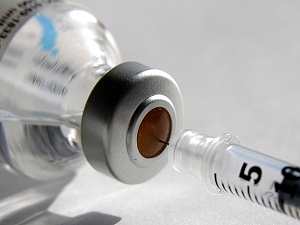MMR and Autism link – Will the debate now be silenced?
On the 28th January 2010 the General Medical Council reached a verdict in its longest ever investigation in to the ethics behind research carried out by Dr Andrew Wakefield, who came to notoriety by suggesting a link between the MMR vaccine (measles mumps and rubella) and autism.
 Despite the fact that no children were injured, parental consent was obtained, and not one parent complained about Dr Wakefield, the doctor now faces the possibility of being struck off the GMC register, which will prevent him from practising medicine in the UK. His reputation is now in tatters despite having the full support of the parents involved in his MMR research.
Despite the fact that no children were injured, parental consent was obtained, and not one parent complained about Dr Wakefield, the doctor now faces the possibility of being struck off the GMC register, which will prevent him from practising medicine in the UK. His reputation is now in tatters despite having the full support of the parents involved in his MMR research.
According to reports in the Daily Mail (29th January 2010) the GMC, went out of its way to say the investigation was about ethics, not the validity of his findings. And yet it seems that media outlets are focusing on “flawed research,” with the implication being that his findings are invalid. In fact, many newspapers go on to point out that numerous other studies have failed to provide a link between the MMR vaccine and autism.
It is true that many other studies have been conducted, but it also true that studies can be skewed to find what they want to find. For example, for years tobacco companies told us that cigarettes were safe, and there was no evidence to suggest a link between cigarette smoking and lung cancer. Who was paying for these studies and whose interest did these findings serve?
The pharmaceutical industry is not unlike the tobacco industry; they are both worth billions. Whose interest would it be in to find a causal link between the MMR vaccine and autism? Certainly not the vaccine manufacturers. Would it really be in their interest to find that they were producing a drug that could cause such harm and lead to huge payouts in compensation for the victims?
And what about government? Is it really in their interest to find a link between the vaccines they recommend, and damage to children? Would they then not be equally as culpable? Especially in countries such as the UK, where they also administer the vaccine through the NHS.
And what about doctors? How many of them now, after seeing what happened to Dr Wakefield, would be willing to challenge the establishment? Many of the mothers who still champion Dr Wakefield, say he was the only medical professional who was prepared to listen to them. Most other healthcare professionals dismissed claims by mothers of children who “changed” after their MMR vaccination as being overprotective or even paranoid. Their empirical evidence was not taken seriously, and they were told that the development of autism was coincidental with the timing of the vaccine.
Now look at the contrasts between the Wakefield case and the case of Dr Jane Barton, as reported by the BBC 29th January 2010, (the day after the Wakefield verdict). Here a GMC panel decided to allow a doctor to continue to practise medicine, even when found guilty of serious professional misconduct. Dr Baron was found to have prescribed drugs in excessive doses, in amounts sufficient to cause death. When comparing these two cases you have to wonder about what the real motivation is in the Wakefield case, and whether the GMC is really there to protect the public’s best interest.
The MMR vaccine has side effects in common with many vaccinations. They may be mild in some cases, and have a greater severity in others. At present we are told by the authorities that the MMR vaccine is safe. This may or may not be true. The problem is, with such huge disparities in a system that oversees the medical profession, how can parents have any confidence and be reassured to that effect.
You must be logged in to post a comment Login